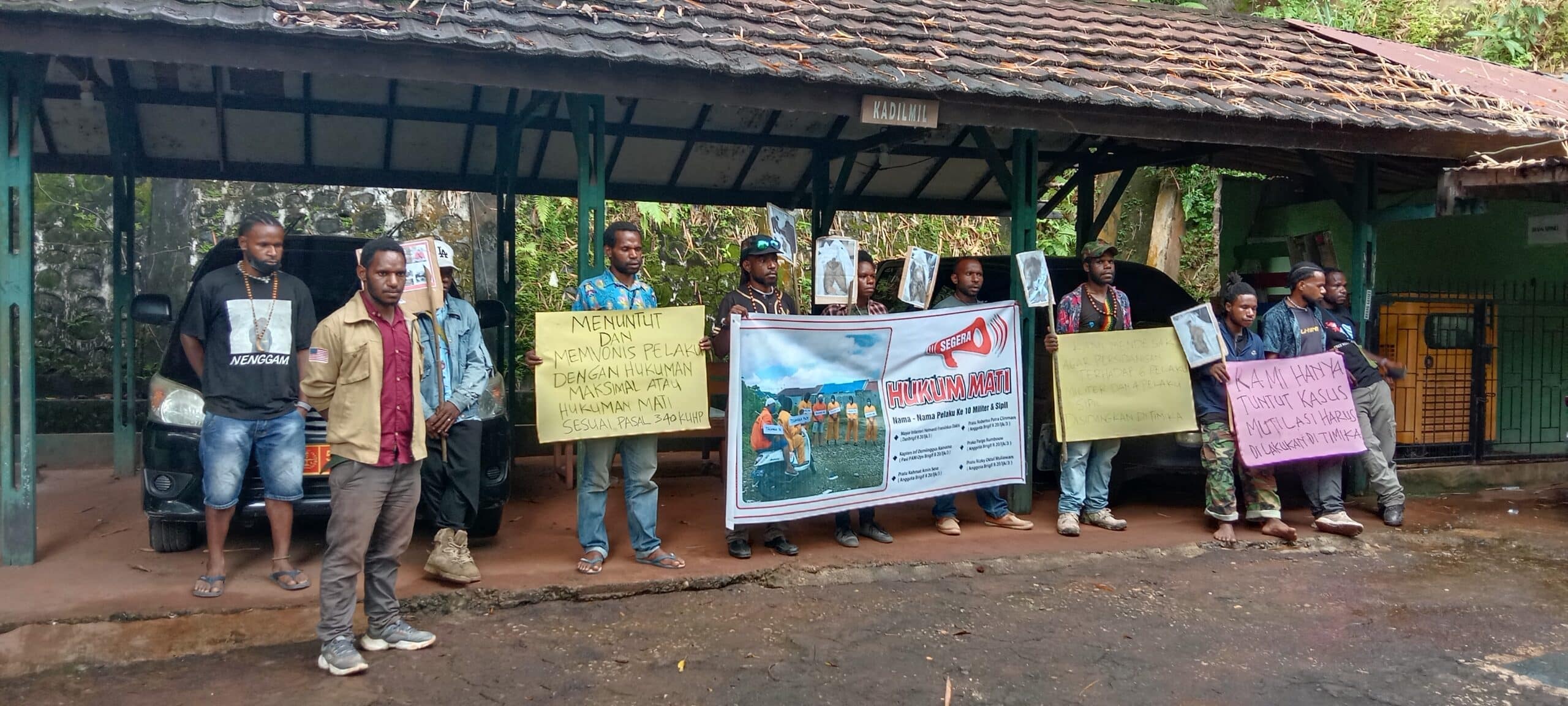Jayapura, Jubi – The Indonesian government has faced substantial criticism, questions, and recommendations from the UN Human Rights Committee regarding the transparency in addressing past serious human rights violations, the abolition of the death penalty, and ongoing violence in Papua. The government has been accused of distorting the facts regarding the human rights situation in Indonesia, particularly in Papua.
This has garnered attention from civil society groups during the ICCPR Review of Indonesia, comprised of Asia Justice and Rights (AJAR), Amnesty International Indonesia, Asian Forum for Human Rights and Development (FORUM-ASIA), Human Rights Working Group (HRWG), Commission for the Disappeared and Victims of Violence (KontraS), KontraS Aceh, Transmen Indonesia, and the Indonesian Legal Aid Foundation (YLBHI).
They highlighted the situation following the International Covenant on Civil and Political Rights (ICCPR) review session by the United Nations Human Rights Committee (HRC) held in Palais Wilson, Geneva on March 11-12, 2024.
Quoting KontraS’ report on Thursday (3/24/2024), the coalition emphasized that the agenda was not an intervention into Indonesia’s jurisdiction but rather a duty for states party to the ICCPR to report on the progress of covenant implementation within their jurisdiction, as stipulated in the ICCPR.
The coalition also assessed the reality of state protection for human rights defenders, the strengthening of the National Human Rights Commission (Komnas HAM) and the National Commission on Violence against Women (Komnas Perempuan) in improving human rights in Indonesia, the elimination of discriminatory and repressive policies, urging the ratification of refugee conventions, and President Joko Widodo’s questioned neutrality in the 2024 election involving Gibran Rakabuming Raka.
Unfortunately, according to the coalition, the response from the Indonesian government was inadequate. Criticisms and questions raised were not adequately addressed in the context expected by members of the UN HRC. Some questions remained unanswered, including the progress of unresolved cases of serious human rights violations, such as those in Wamena, Wasior, and Paniai.
The coalition also pointed out a lack of transparency regarding the Fact-Finding Team for the murder case of Munir Said Thalib, the government’s position on ratifying the Optional Protocol to the ICCPR (OP-ICCPR), the strengthening of institutions involved in the Cooperation to Prevent Torture (KuPP), violations by the Constitutional Court in Gibran’s candidacy in the election, and the excessive use of force by security forces against civilians, including in Papua, among other issues.
Additionally, the ICCPR session revealed a lack of accountability from the Indonesian government in fulfilling civil and political rights through the responses provided. According to the coalition, the government’s responses tended to focus on technical matters and were not substantial, seemingly avoiding the questions raised.
Therefore, the coalition of civil society organizations urges the Indonesian government to first, demonstrate accountability as an ICCPR party state in addressing human rights issues in Indonesia across various sectors, in line with the commitments outlined in the covenant. Second, prove its capacity as a member of the UN HRC to set an example for other member states and international partners, as well as to promote human rights issues. And thirdi, substantiate the government’s claim of a positive democratic climate through the ratification of delayed international covenants, such as the International Convention for the Protection of All Persons from Enforced Disappearance (ICPPED), the Optional Protocol to the ICCPR (OP-ICCPR), and the Optional Protocol to the Convention against Torture (OP-CAT).
Additionally, the coalition emphasizes the need for the government to end repressive actions against civilians, repeal discriminatory laws, prevent and eliminate all forms of discrimination against vulnerable groups, and stop the criminalization of human rights defenders and journalists.
The ICCPR is an international treaty requiring member states to guarantee rights such as the right to life, freedom of expression, freedom of opinion, freedom of assembly, electoral rights, and the right to a fair and impartial trial. The ICCPR aims to strengthen civil and political human rights principles outlined in the Universal Declaration of Human Rights, making them legally binding. The convention consists of an introduction and 53 articles covering six chapters. Indonesia ratified the ICCPR on October 28, 2005. (*)













